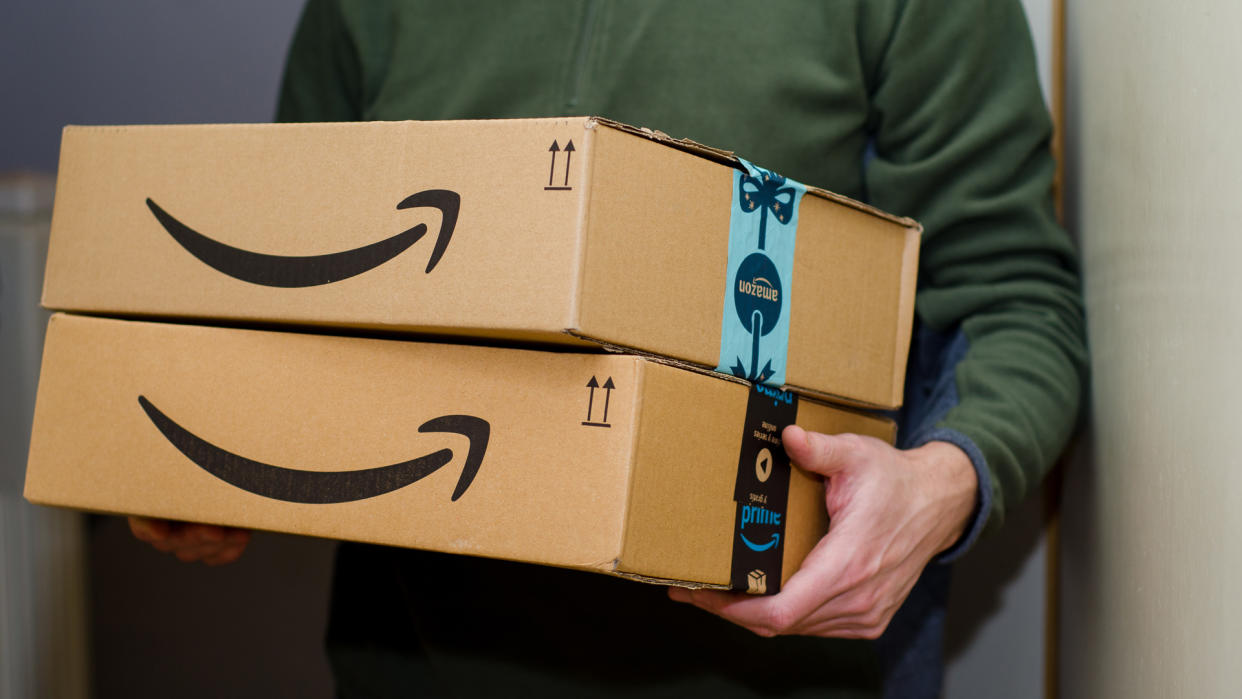Thanks to COVID-19, Holiday Shopping Is Going To Be Really Different This Year
As the coronavirus changes our daily activities, iconic movie scenes like Macaulay Culkin wheeling a grocery cart in “Home Alone” could be replaced by the kid whipping out his smartphone and thumbing through Instacart. It’s just not the same world anymore.
But this holiday season, more is changing than consumers’ online spending habits. Everything from what people are buying, to how they buy it, to who they’re buying it from could all be different as the U.S. shifts to accommodate the holidays in a pandemic.
Here are some of the ways the coronavirus will transform holiday shopping in America.
Last updated: Oct. 26, 2020
More Online Shoppers Than Ever Before
Big Four accounting firm Deloitte is predicting that online holiday sales will increase between 25% to 35% from November through January, reported Forbes. Comparatively, e-commerce has grown around 13% to 17% in past years, so a 25% bump is pretty major.
It’s likely that consumers may do a mix of both online and in-person shopping, but it makes sense that the online side would see a boost during a time where crowded shopping malls are a safety concern.
Less Last-Minute Shoppers
The time-honored tradition of Christmas Eve shopping (for some) will probably see a decrease in popularity this year. Shipping takes time, and no one wants to risk their gift arriving after the holiday season is over.
Tighter Budgets for Holiday Spending
For the tens of millions of Americans affected by layoffs in 2020, the concern probably lies more in rent or mortgage than holiday shopping. COVID-19 has drastically impacted the financial situations of people across the country — whether it be a lost job or mounting medical bills.
But for others, the canceled vacations and multiday concert festivals have likely left them itching to spend. In this way, the disparity between those who have that extra wiggle room in their bank accounts and those who don’t has never been more apparent.
Less Focus on Black Friday
With retailers like Home Depot, Target and Macy’s all planning on extending their Black Friday sales, it’s likely that consumer focus will shift from one singular day to the two-month period between November and January as a whole. Early sales and special online deals may contribute to the longest Black Friday we’ve seen to date.
Read More: 12 Stores That Are Changing Their Black Friday Plans
Big Businesses Will Profit as More Small Businesses Close
Like a person living paycheck to paycheck, small businesses were the most vulnerable when the recession hit in mid-March. And according to Yelp’s latest Economic Impact Report, more than 163,000 have closed their doors.
What’s worse — 60% of those businesses are never coming back.
This holiday season, many of the mom-and-pop shops where people do their shopping may not be there anymore. Meanwhile, big-ticket retailers like Amazon and Walmart are perfecting their home-delivery methods as e-commerce skyrockets.
Gifts Could Look Different, Too
Even the things consumers are buying could look very different. Loungewear may be prioritized over business or event clothing, and plane tickets could be replaced by a shiny new RV.
Some popular items during the pandemic have included houseplants, home exercise equipment and video games. National retailer L.L. Bean has also reported an early demand for snowshoes and sleds, just as bicycle and boat sales spiked in summer.
But in the face of this pandemic, there are still familiar old comforts. One tradition that won’t be changing anytime soon? Holiday baking.
More From GOBankingRates
This article originally appeared on GOBankingRates.com: Thanks to COVID-19, Holiday Shopping Is Going To Be Really Different This Year







